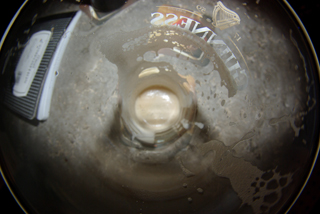Thanks to Google, writers' lives may be even more thankless, unless....


In a nutshell (The Author's Guild information about the settlement is here), Google has agreed to pay at least $60 to copy a book upfront and a continuing share of revenue of 63 percent. Roy Blount Jr., president of The Authors Guild, calls this an "interesting [and] ambitious" conclusion to several years of acrimony. From the perspective of the writer, it's the same kind of dregs we get from paper publishing, even if Blount does paint the agreement with a happy, though cautious-seeming, face.
Blount also calls this a boon to readers and researchers, which it absolutely is. However, for the typical author, their share of the revenue from use of their work will actually drop compared to the "good old days" when publishers were leaving them eight to 12 percent of the cover price. Of that 63 percent of future revenue, the lion's share—usually more than would be retained from selling a book, as digital royalties are generally lower than paper royalties—will go to publishers.
Now, I am not complaining about this. It's just that if we're going to declare this is progress, its got to be accompanied by a radical change in the economics of publishing, mainly the removal of the intermediary of publishers who really have done little other than put books on paper and, in rare cases, market those books. Great publishers, that contribute to every aspect of the creative process, are so rare as to be considered extinct.
Self-publishing or an "enhanced" self-publishing system, one in which editors are deployed to help authors improve their books before publication, including helping with the packaging and development of ancillary revenue opportunities, has to take the place of the gigantic publishing house of today, so that those top-heavy organizations no longer carry away most of the value created through authorship.
As it is today, most authors never see anything after the tiny advance paid for their books. A book can sell thousands or tens of thousands of copies before the author ever sees an additional cent. That has to change so that the Internet and culture-at-large don't become what Google CEO Eric Schmidt said an Internet without a viable publishing industry would be: "a cesspool."
Google could help solve that problem by becoming a publisher of online books, offering that 63 percent share directly to authors, who could work with editors on a profit-sharing basis. Amazon, too.
Let me tell you something: If we don't find a way to make authorship pay without turning being an author into a perpetual social marketing machine, rather than an author with ideas they pursue, often in solitude, there won't be any good books—or whatever takes the book's place. Maybe there is an entire layer of a new industry to insulate authors from having to hear and respond to every opinion about their work to be born out of this, but I do know there was a time when authors ignored critics. Now, everyone is a critic and demands to be heard, which takes a lot of time away from actual writing when authors make the commitment to "engage" their audience.
So, step up, you publishing innovators. It's your time.
With the Google settlement, authors' hopes of a panacea meet reality and we're still the poor ink-stained wretches of before, last in line to reap the benefits of our work and dreams (the exception of super-bestsellers proves this rule). The pain point is here. It is today's problem, the question of how we pay for printed ideas, as The New York Times' David Carr pointed out today about the newspaper and magazine industry. Who's going to make the unexpected turn that transforms this industry, because it's clear the author is still largely without friends that aren't trying to take nine pints of blood for every pint they leave to the writer at the end of the day (except for the blessed companionship of patient spouses, dear friends and family, who actually give blood, though they don't always know it).